BRI sputters in South Asia
A decade after its launch, China’s Belt and Road Initiative has slowed down in South Asia, the result of poorly conceived projects, and irresponsible behavior from borrower and lender alike.
 Courtesy:
Courtesy:
A decade after its launch, China’s Belt and Road Initiative has slowed down in South Asia, the result of poorly conceived projects, and irresponsible behavior from borrower and lender alike.
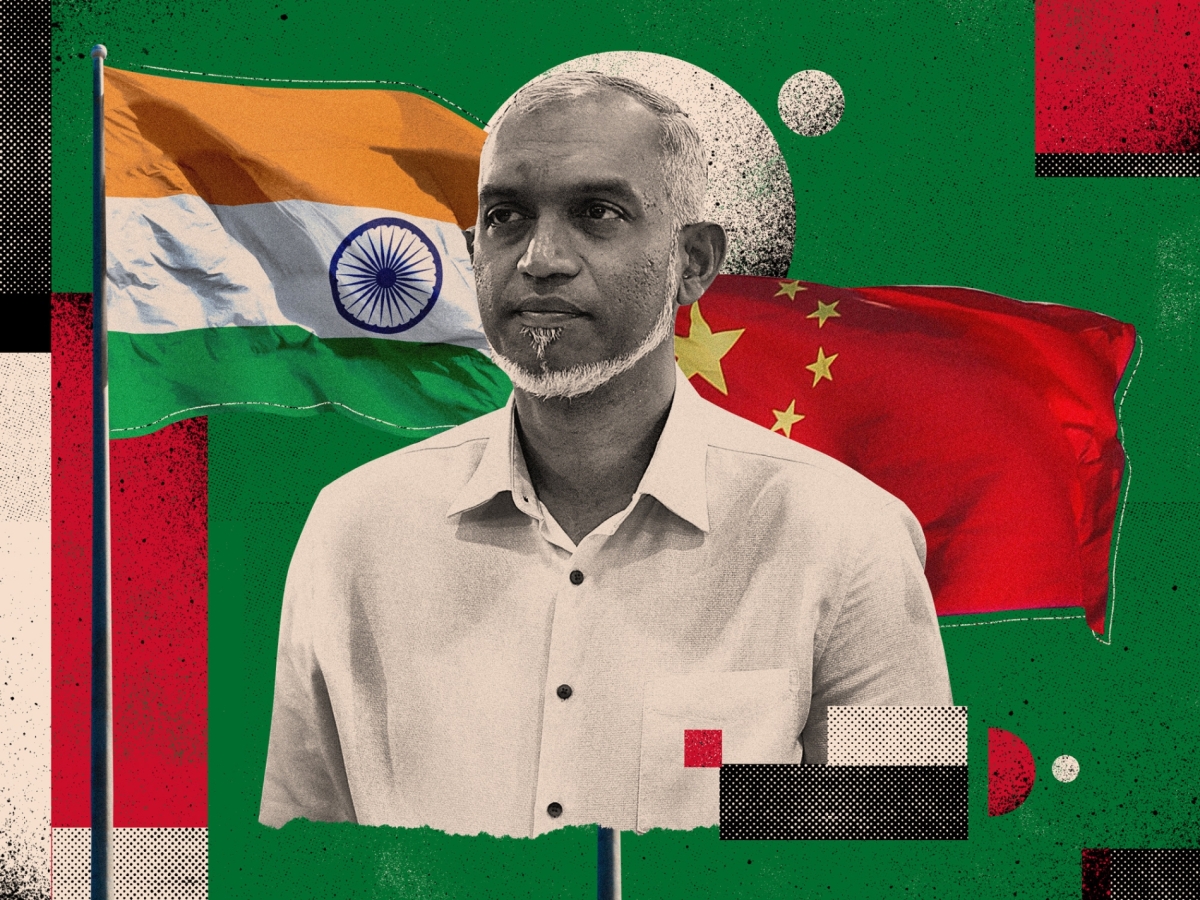 Courtesy: Al Majalla
Courtesy: Al Majalla
Maldives’ President Mohammed Muizzu’s desire to have an independent foreign policy has steered it away from India and closer to China. It has added a new dimension to the strategic contestation in the Indian Ocean. Rajiv Bhatia, Distinguished Fellow, Foreign Policy Studies, shares his insights on the Maldives’ strategic importance in the region, the ‘India Out’ campaign, and the way forward for Indian diplomacy in South Asia.
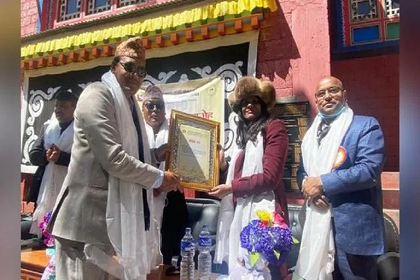 Courtesy: ANI
Courtesy: ANI
Since 1947, India has had a proud record of development cooperation. It began even though it was newly independent and itself developing, but created a camaraderie with movements in other emerging countries. Now after 75 years, its time to move toward an FDI-led model, which will particularly help reduce the rising indebtedness in the developing world.
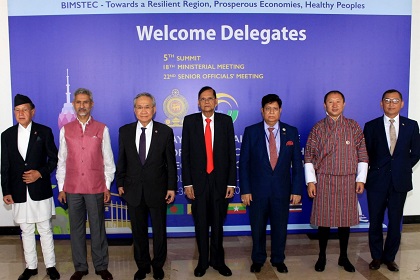 Courtesy: BIMSTEC
Courtesy: BIMSTEC
BIMSTEC is of special importance to India as it is a crucial link between the Neighbourhood First and Act East policies. This almost 25 year old multilateral can contribute to the Indo-Pacific region by addressing challenges in strategic areas of regional connectivity, security cooperation, free trade, and geoeconomic ties with external partners.
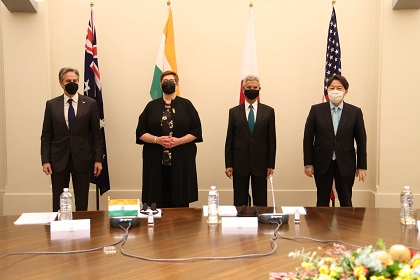 Courtesy: Ministry Of External Affairs
Courtesy: Ministry Of External Affairs
The Quad Foreign Ministers’ Meeting, held in Melbourne on February 11, revealed an ambitious plan for economic and developmental affairs, beyond the security concerns posed by China. Despite differing approaches towards Myanmar and Ukraine, the Quad countries are strengthening their cooperation while maintaining strategic autonomy.
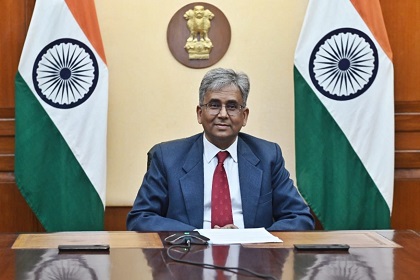 Courtesy: Ministry of External Affairs, Government of India
Courtesy: Ministry of External Affairs, Government of India
Saurabh Kumar, Secretary (East), Ministry of External Affairs, Government of India, delivered the keynote address at the panel discussion on India in the Indo-Pacific: Pursuing Prosperity and Security, organised by Gateway House and the U.S. Embassy, New Delhi, on 1 February 2022. He outlined India's vision for a free and inclusive Indo-Pacific, and the initiatives undertaken to further cooperation among nations in the region.
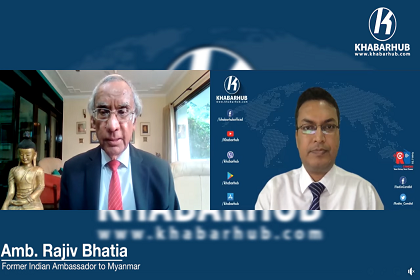 Courtesy: Khabarhub
Courtesy: Khabarhub
On 6 October 2021, Ambassador Rajiv Bhatia, Distinguished Fellow, Foreign Policy Studies Programme, spoke to Dr. Pramod Jaiswal, Strategic Affairs Editor at Khabarhub on the role of Nepal in BIMSTEC and SAARC, in an analysis of the 17th BIMSTEC ministerial meetings. He also highlighted the role of SAARC and BIMSTEC in countering Chinese influence in the region.
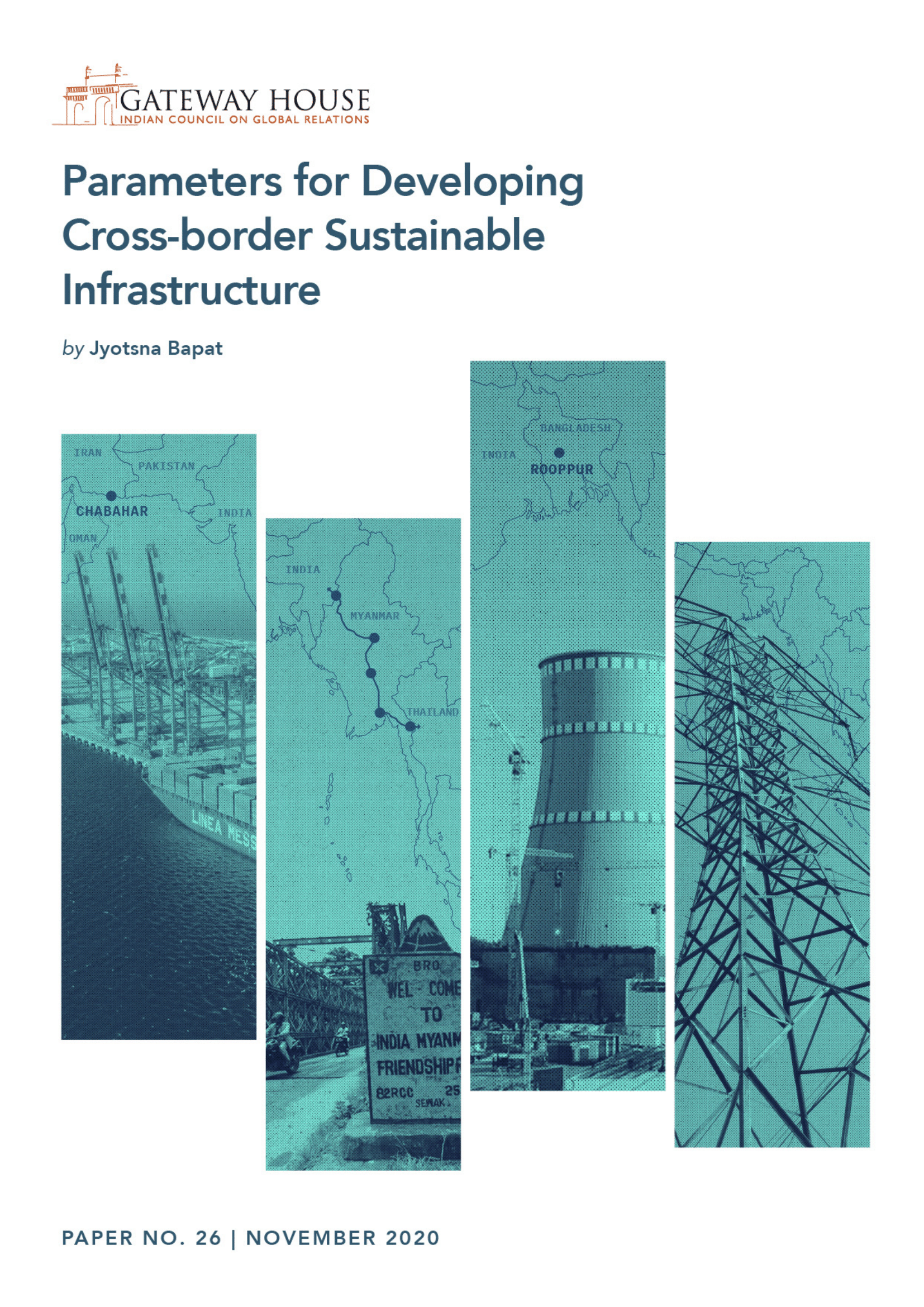 Courtesy: Gateway House
Courtesy: Gateway House
Cross-border infrastructure has been influencing the geopolitics of Asia, specifically South Asia. Since 2014, India has been investing in trilateral and multilateral infrastructure projects, in its coastal and inland neighbourhood. This paper argues that making environmental security a parameter for developing cross border sustainable infrastructure, will provide a unique opportunity for India to develop norms for environmental and social security policy, training assistance, and capacity-building in the projects it funds abroad.
 Courtesy: Shutterstock
Courtesy: Shutterstock
The UN turned 75 this year but instead of grand celebrations, the world witnessed an empty UNGA with world leaders addressing it via video screening because of the pandemic. The UN is under unprecedented stress and being shown up for its inability to tackle the challenges of today like the pandemics, climate change, terrorism or global peace and security. The institution's key governing structures, especially the UN Security Council, are inadequate and demand reform. India must now use gritty resolve to ensure its place in these governing structures.
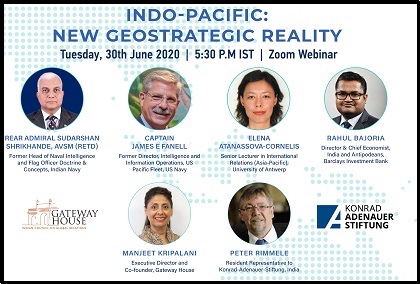 Courtesy: Gateway House
Courtesy: Gateway House
On 30th June, 2020 Gateway House in association with Konrad-Adeneur-Stiftung (KAS) co-hosted a webinar on Indo-Pacific: New Geo strategic reality.